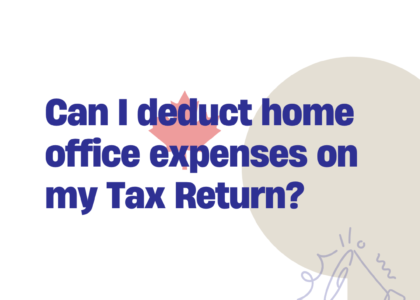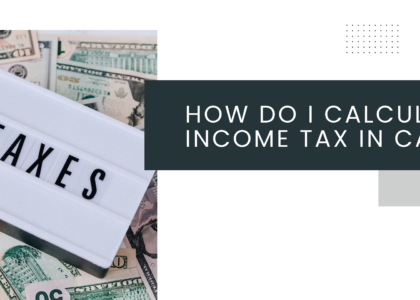Tax Deductions for Small Businesses in Canada
As a small business owner in Canada, understanding and maximizing tax deductions can significantly reduce your tax burden. Here are some key deductions you should be aware of:]
1. Home Office Expenses
If you run your business from home, you can deduct a portion of your home expenses. This includes mortgage interest, rent, utilities, property taxes, and home maintenance costs. The percentage of the deduction is usually based on the square footage used for business purposes.
2. Vehicle Expenses
If you use your vehicle for business purposes, you can deduct related expenses such as fuel, maintenance, insurance, and depreciation. Keep a detailed log of your business mileage to calculate the deductible portion accurately.
3. Business Supplies
Costs for office supplies, such as stationery, printers, and computers, are deductible. These are essential expenses to keep your business running smoothly.
4. Advertising and Promotion
Marketing your business is vital, and the good news is that advertising and promotional expenses, including online ads, social media promotions, and printed materials, are deductible
5. Salaries and Wages
Wages paid to employees, including payroll taxes and benefits, are deductible. If you’re the sole proprietor, you cannot deduct your salary, but you can deduct the salaries of any employees you hire.
6. Professional Fees
Fees paid to accountants, lawyers, and other professionals for business-related services are deductible. This includes the cost of preparing your business taxes.
7. Rent
If you rent a commercial space for your business, the rent you pay is fully deductible. This also applies to any equipment you lease for business purposes
8. Meals and Entertainment
You can deduct 50% of the cost of meals and entertainment expenses incurred while conducting business, such as client meetings or business travel. However, the expense must be directly related to your business.
9. Travel Expenses
Business-related travel expenses, including transportation, accommodation, and meals, can be deducted. Keep detailed records and receipts to support your claims
10. Insurance Premiums
Premiums paid for business insurance, such as liability insurance, property insurance, and health insurance for employees, are deductible.
11. Interest and Bank Fees
Interest on loans taken for business purposes and bank fees related to your business accounts are deductible.
12. Capital Cost Allowance (CCA)
Instead of deducting the full cost of certain assets, such as vehicles or equipment, you can claim a portion of the cost over several years through Capital Cost Allowance (CCA)
13. Bad Debts
If you have invoiced for services or products that you haven’t been paid for and don’t expect to be paid for, you can write off these bad debts as a deduction
14. Training and Education
Courses, seminars, or workshops that improve your business skills or industry knowledge are deductible. This can include both online and in-person training.
15. Utilities
Utility expenses, such as electricity, heat, and water, for your business premises are deductible. If you operate from home, a portion of your utilities can be claimed as a home office expense.
Conclusion
Taking advantage of these tax deductions can help reduce your taxable income, freeing up more resources to reinvest in your business. Be sure to keep accurate records and consult with a tax professional to ensure you’re maximizing your deductions and complying with CRA regulations.
.






